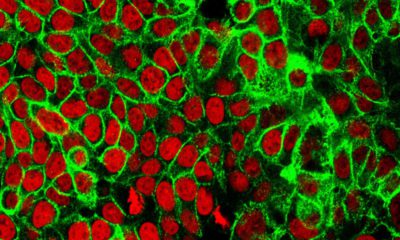Published
6 years agoon
By
AP News
NEW YORK — Eating red meat is linked to cancer and heart disease, but are the risks big enough to give up burgers and steak?
A team of international researchers says probably not, contradicting established advice. In a series of papers published Monday, the researchers say the increased risks are small and uncertain and that cutting back likely wouldn’t be worth it for people who enjoy meat.
Their conclusions were swiftly attacked by a group of prominent U.S. scientists who took the unusual step of trying to stop publication until their criticisms were addressed.
The new work does not say red meat and processed meats like hot dogs and bacon are healthy or that people should eat more of them. The reviews of past studies generally support the ties to cancer, heart disease and other bad health outcomes. But the authors say the evidence is weak, and that there’s not much certainty meat is really the culprit, since other diet and lifestyle factors could be at play.
Most people who understand the magnitude of the risks would say “Thanks very much, but I’m going to keep eating my meat,” said co-author Dr. Gordon Guyatt of McMaster University in Canada.
Based on the analyses, a panel of the international researchers said people do not have to cut back for health reasons. But they note their own advice is weak and that they didn’t take into account other factors, such as animal welfare and the toll meat production has on the environment.
There was dissent even among the authors; three of the 14 panelist said they support reducing red and processed meats. A co-author of one review is also among those who called for a publication delay.
Those who pushed to postpone publication also questioned why certain studies were included or excluded in the reviews. Harvard’s Dr. Frank Hu also noted that about a third of American adults eat at least one serving of red meat a day. He said the benefits of cutting back would be larger for those who eat such high amounts.
[rlic_related_post_two]
Still, other researchers not involved in the reviews have criticized nutrition science for producing weak and conflicting findings. Dr. John Ioannidis, a professor of medicine at Stanford University, said such advice can distract from clearer, more effective messages, such as limiting how much we eat.
As for his own diet, Guyatt said he no longer thinks red or processed meats have significant health risks. But he said he still avoids them out of habit, and for animal welfare and environmental reasons.


Sonography Helped Save Her Life. Years Later, It Saved Her Baby. Now She Does the Same.


‘Baron of Bacon’ Boldly Sets Up Shop with Endless Variety of Burgers. Here’s a Sampling.


Health Panel Proposes Colon Cancer Tests Start at 45, Not 50


California Court Upholds Verdict in Roundup Cancer Case


Is Seltzer Water Healthy?


Garry Bredefeld's Battle With Cancer




